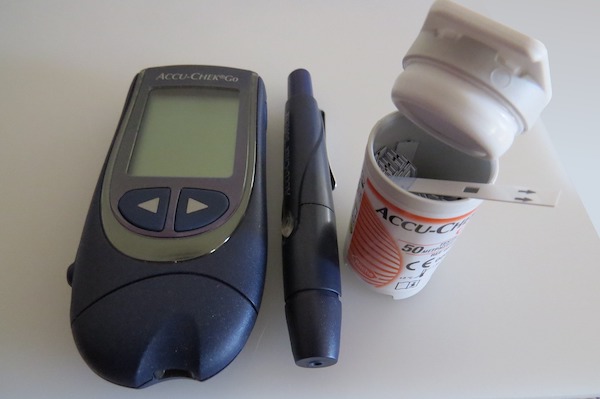

Hundreds of Jersey diabetics are being warned not to take a relaxed approach to monitoring their condition after a 30-year-old woman "tragically" died after letting it get "out of control".
The alert came from Diabetes Jersey - which supports the island's 4,500-strong diabetic population, of which around 400 have Type 1, caused by the body's failure to produce insulin, which controls sugar in the blood - following an inquest held on Friday.
Presided by Relief Coroner Dr Martin Barrett, the inquest heard that Claire*, who was diagnosed with diabetes at the age of 13, passed away due to a serious complication of her condition in July.
Described as “intelligent and smart” by her partner who called her his "soulmate", Claire was found unresponsive early on in the evening. An ambulance was called but sadly the paramedics could do nothing but pronounce Claire’s death.
Speaking at the inquest, Police Coroner’s Officer Tony Forder said that Claire had been frequently sick in the weekend before her death and couldn’t keep any food down. Her partner, who had had to call ambulances for Claire on several occasions in the past, said he didn’t feel she needed medical assistance.
“I really didn’t think that she was that bad,” he said.
Pictured: The inquest was heard at Morier House.
Dr Miklos Perenyei, a local Consultant Cellular Pathologist, said he had found evidence of diabetic ketoacidosis - a potentially serious complication of diabetes that can occur when the body runs out of insulin, the hormone that regulates sugar.
The phenomenon disrupts normal cell function and can cause fatal complications, such as adult respiratory syndrome or kidney failure.
Dr Perenyei concluded Claire had died of diabetic ketoacidosis by pneumonia.
Police found several items used to the treatment of diabetes and monitoring of blood glucose in Claire’s possession. She had a number of insulin pens with plenty of refills as well as a glucose monitor, unused lancets and test strips.
Dr Parag Thaware, a Locum Consultant in Endocrinology and Diabetes, examined the glucose monitor and found that although it was in working order, it hadn’t been used in over six months.

Pictured: Claire had a glucose monitor with lancets and test strips but hadn't used it in six months.
The results available on the monitor, which dated back to October, November and December 2018, showed Claire had been prone to frequent bouts of hypoglycaemia or low blood sugar.
“She clearly chose not to use [her monitor],” Mr Forder said. “Blood testing is vitally important,” he stated, adding that it is the only way to check sugar levels and allows for quick action.
“It is not understood why [Claire] didn’t take testing more seriously,” Mr Forder continued. “She had managed for some six months, relying on experience, to manage her diabetes... This was an extremely dangerous thing to do and the outcome has been a tragic loss of life.”
Mr Forder’s comment were echoed by the Chairman of local charity Diabetes Jersey, Bill O’Brien.
"These are very tragic circumstances that have led to a young lady’s premature demise," he said. "It shows the importance for those with Type 1 diabetes to take their condition seriously and to undertake regular blood testing and monitoring."

Pictured: Claire’s GP described her as an “infrequent attender” both in general practice and hospital clinics.
Claire’s family explained she had never looked after her condition well and had never taken it seriously enough. They said that when she wanted to eat a piece of cake, she would simply double her dose of insulin.
Claire’s GP described her as an “infrequent attender” both in general practice and hospital clinics. In addition, Claire was only seen “occasionally” by the diabetic clinic and had been discharged in 2017 after missing two appointments in a row.
Dr Martin Barrett, the Relief Coroner, described the glucose levels found in Claire’s blood as exceptionally high, noting that her diabetes was “out of control”.
Referring to her lack of engagement with staff at the hospital, he said it raised the issue of neglect and self-neglect.
He eventually concluded that the latter had “aggravated or contributed” to Claire’s death and formerly recorded her cause of death as being “ketoacidosis resulting from poorly-controlled diabetes contributed by self-neglect and a failure to comply with medical advice".
Dr Barrett completed the hearing by expressing his condolences to Claire’s family.
*Name changed to protect anonymity.
Comments
Comments on this story express the views of the commentator only, not Bailiwick Publishing. We are unable to guarantee the accuracy of any of those comments.